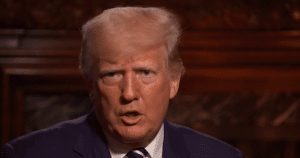Austrian Scholar Finds Suspected Plagiarism in Harris-Coauthored Book
Austrian Professor Detects Plagiarism in Crime Book
Prominent Austrian professor Dr. Stefan Weber, well-known for uncovering instances of plagiarism, has reportedly discovered significant issues within a book co-authored by Vice President Kamala Harris. The book, published in 2009 and focusing on crime, has been put under scrutiny due to allegations raised by Christopher Rufo, a writer affiliated with the Manhattan Institute.
The allegations suggest that over a dozen passages were copied from various sources without proper credit.
This development comes amid growing concerns about the integrity of content attributed to public figures. According to Rufo's findings, the allegedly plagiarized material was sourced from a host of existing works, presenting a case that raises questions on literary and academic ethics.
Suspected Sources of Plagiarized Material
Among the highlighted sources featured in Rufo’s report are several easily accessible public documents. For instance, portions of the book reportedly mirror content from a 2008 NBC News article that discussed graduation rates in urban schools. Further analysis indicates the use of language drawn from a press release by the John Jay College of Criminal Justice.
Additionally, a report from the Urban Institute describing a nonprofit group's initiatives was allegedly duplicated. This casts a wider net on where the inspiration, or lack thereof, may have been drawn from during the book's creation process.
Use of Public Reports and Wikipedia
Some of the more detailed sections in question include those linked to the Bureau of Justice Assistance's report. This particular section deals with community court programs and describes the efforts to revitalize a neighborhood in West Palm Beach. An array of content appears to have been borrowed from these detailed reports without appropriate acknowledgment.
Perhaps most striking is the accusation that entire paragraphs pertaining to a New York court program have seemingly been lifted from Wikipedia entries. Wikipedia, widely regarded as an unreliable source for academic citation due to its editable nature by the public, adds further depth to the concerns highlighted by Rufo.
Comparison to Other High-Profile Cases
The severity of the alleged plagiarism is underscored by Rufo's comparison to past controversies. According to Rufo, "multiple violations" discovered mimic the gravity of issues previously identified in former Harvard president Claudine Gay's doctoral thesis. Such comparisons draw parallels, suggesting a broader issue of uncredited usage of work within influential circles.
Rufo also emphasizes the potential dependency on a ghostwriter, a practice not uncommon for public figures penning books. However, he states, this does not absolve Harris of responsibility, as her name endorsed the cover of the publication.
Lack of Response From Harris
The attention now turns to Vice President Kamala Harris, who until now has not provided an official response concerning these allegations. This silence follows past criticisms, including accusations of adopting a "no tax on tips" policy echoed by former President Donald Trump.
In public discourse, questions often arise about the authenticity and ownership of written works attributed to high-profile individuals. The debate is further fueled by the notion of ghostwriters, who contribute to content while the attributed author remains the face of the publication.
Public Reaction and Ethical Considerations
Public reactions to the unfolding scandal reveal a mixed array of opinions. Supporters of Harris may view these allegations as politically motivated or exaggerated. Nonetheless, the ethical considerations surrounding plagiarism remain pertinent, regardless of political affiliations.
The unfolding narrative serves as a reminder of the importance of transparency and due diligence in authorial responsibilities. It prompts a reflection on the importance of crediting original sources, reinforcing the integrity of scholarly and public discourse alike.
Yet, the story is about more than the allegations themselves; it highlights the intricate processes involved in writing and publishing in today's interconnected society. As this situation develops, broader conversations about intellectual property, attribution, and public accountability are likely to ensue.




